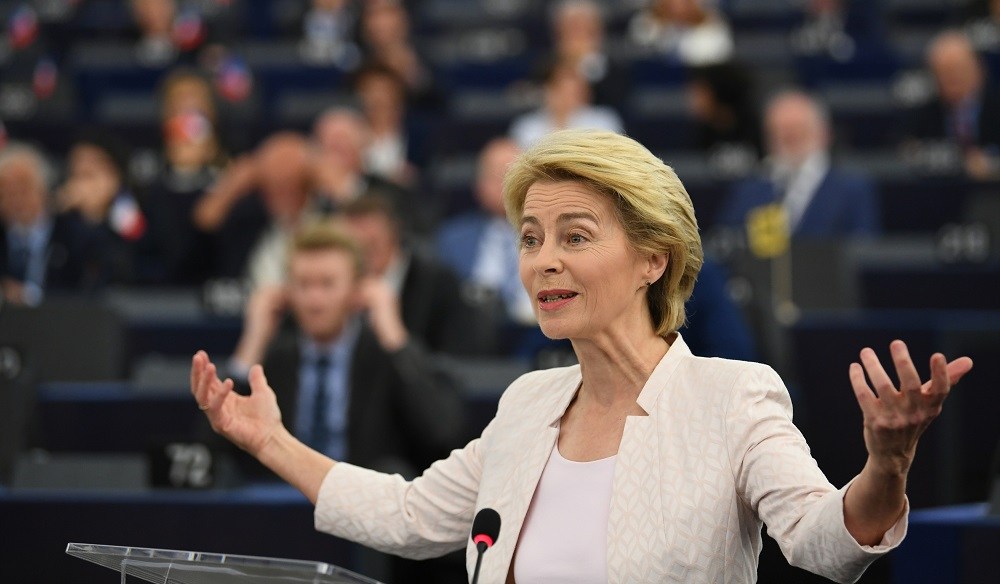BRUSSELS BEHIND THE SCENES
Weekly analysis and untold stories
With SAMUEL STOLTON
Other Brussels behind the scenes stories:
Why the UK should never return to the EU
Could Europe contract the deadly Chinese marketplace malady?
The curious case of the Commission President's mobile phones
A leaky Commission
“I have no idea where these are coming from, or why they are being leaked,” the fresh and sprightly Commission official says, running her index finger up and down the stem of the wine glass. A crimson press of lipstick marks the rim. A wry smile unfolds across her face. The muted afternoon sun aches its way through the stained-glass windows of this Irish bar in Brussels’ European quarter.
Since the start of the year, European Commission staff have been frenzied in their approach to leaking certain documents to Brussels media outlets. We’ve seen draft versions of the Circular Economy plan, the EU’s industrial strategy, the digital strategy and the executive’s Artificial Intelligence White Paper. All have been leaked to media outlets since the start of the year, and it begs the question – why?
I have received several of these leaks myself and have duly taken upon the task this week to gauge why exactly the Commission is pursuing such a radical change in communications policy to that of the previous executive, who safeguarded internal documents with an air of obstinacy.
Sent out every Friday afternoon, BRUSSELS BEHIND THE SCENES brings the untold stories about the characters driving the policies affecting our lives. Analysis not found anywhere else, The Brussels Times' Samuel Stolton helps you make sense of what is happening in Brussels.
If you want to receive Brussels behind the scenes straight to your inbox every Friday, subscribe to the newsletter here.
There are several reasons why an institution may decide to leak documents. Politicians could be attempting to assess the public’s response to a particular legislative proposal before officially committing to anything – such was the case with the recent Commission leak on Artificial Intelligence, which had suggested that the executive may consider a temporary ban on facial recognition technologies. The story provoked an impassioned response on both sides of the debate and a later leak of the revised document revealed that the possible ban was no longer being considered.
Then there are the moral agents and whistle-blowers, who believe it their duty to bare potentially scandalous information to a wider audience. Leaks may also emerge as a result of personal connections between a small network of individuals – a romantic fling that entails the necessary disclosure of guarded documents for the affair to be substantiated.
Then again, such exposés could even manifest from those who simply derive a sense of perverse satisfaction in seeing the workings of their stealthy project appear far and wide across the European media landscape. In this regard, one’s imagination is bewitched by scenes of a pale, gaunt and hunchbacked fonctionnaire, throbbing with a sadistic pleasure as he scans copies of a Commission draft paper of which he knows will make waves when splashed across the front pages of the European dailies the following morning.
“There are also of course the conspiracy theories,” another EU source told me. “Someone could have been planted in one of the institutions specifically to leak documents such as these, to serve a particular private agenda.”
“However, with the current leaks, I don’t think this is the case. The Commission clearly has an plan to ensure that certain information makes its way into the public domain.”
BRUSSELS BEHIND THE SCENES POWERED THIS WEEK BY
Speaking off-the-record to several sources who have directly leaked information to me, the above option seems to be the most plausible reason as to why the new European Commission has adopted a distinctive stance of the leaking of documents.
The leaks that I have come into contact with have surfaced from different sources and have all been policy orientated. They’ve also been draft versions of final documents and haven’t exposed any necessarily scandalous material. They appear as highly coordinated actions coming from within the ‘deep Commission’ - most likely agreed upon by a broad cross-section of executive officials, ranging from members of the College to strategic experts in the spokesperson’s service.
It isn’t difficult to see why the Commission has decided to employ this strategy. The EU has suffered from a crisis of representation over the past four year during the Brexit brouhaha and policy initiatives have, as a result, been side-lined. While political squabbles continue in Europe’s central and eastern quarters, the executive wants to realign the public debate on issues that will have more of an immediate and explicit impact on the everyday lives of citizens across the bloc.
The Commission’s new strategy is a therapeutic exercise. It’s a process of bandaging the painful wounds that have emerged over recent years and represents a bid for the Commission to try and take back control of the public narrative after decades of being the subject of highly manufactured, bitter and spurious media accounts.
With the ‘art of the leak,’ the executive has a greater sway over the public narrative than it would have had otherwise, remaining as it was a passive subject to media reports without much authority in the stories that would manifest, and subsequently little influence in the public perception of the European Union.
Back in the Irish bar, the Commission official takes a sip of the sugary, spicy red wine – the kind of wine only served up in musty pubs around the European quarter. “For us, a leak is a leak is a leak,” she says, hiccupping and wiping away a blushed residue of red wine resting on her upper lip. “Take it as you will. It’s your job to tell the people of Europe about these things anyway.”
Sent out every Friday afternoon, BRUSSELS BEHIND THE SCENES brings the untold stories about the characters driving the policies affecting our lives. Analysis not found anywhere else, The Brussels Times' Samuel Stolton helps you make sense of what is happening in Brussels.
If you want to receive Brussels behind the scenes straight to your inbox every Friday, subscribe to the newsletter here.


